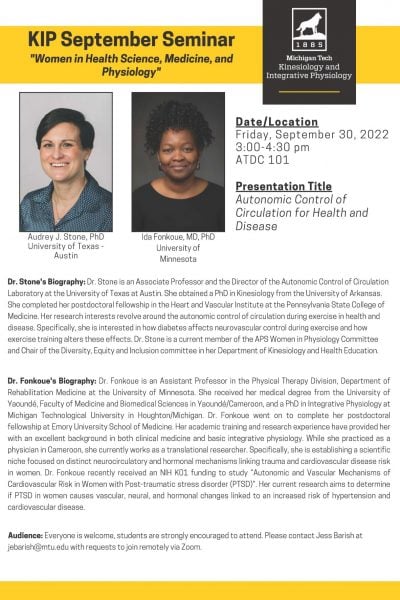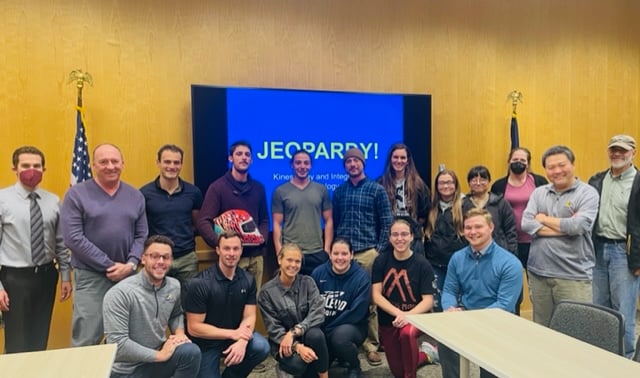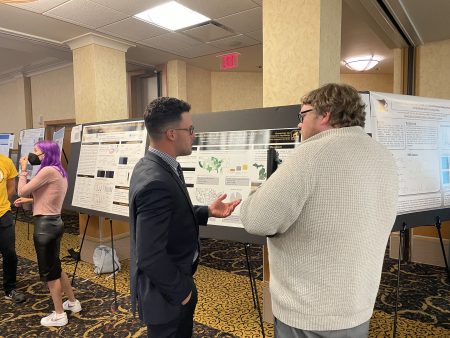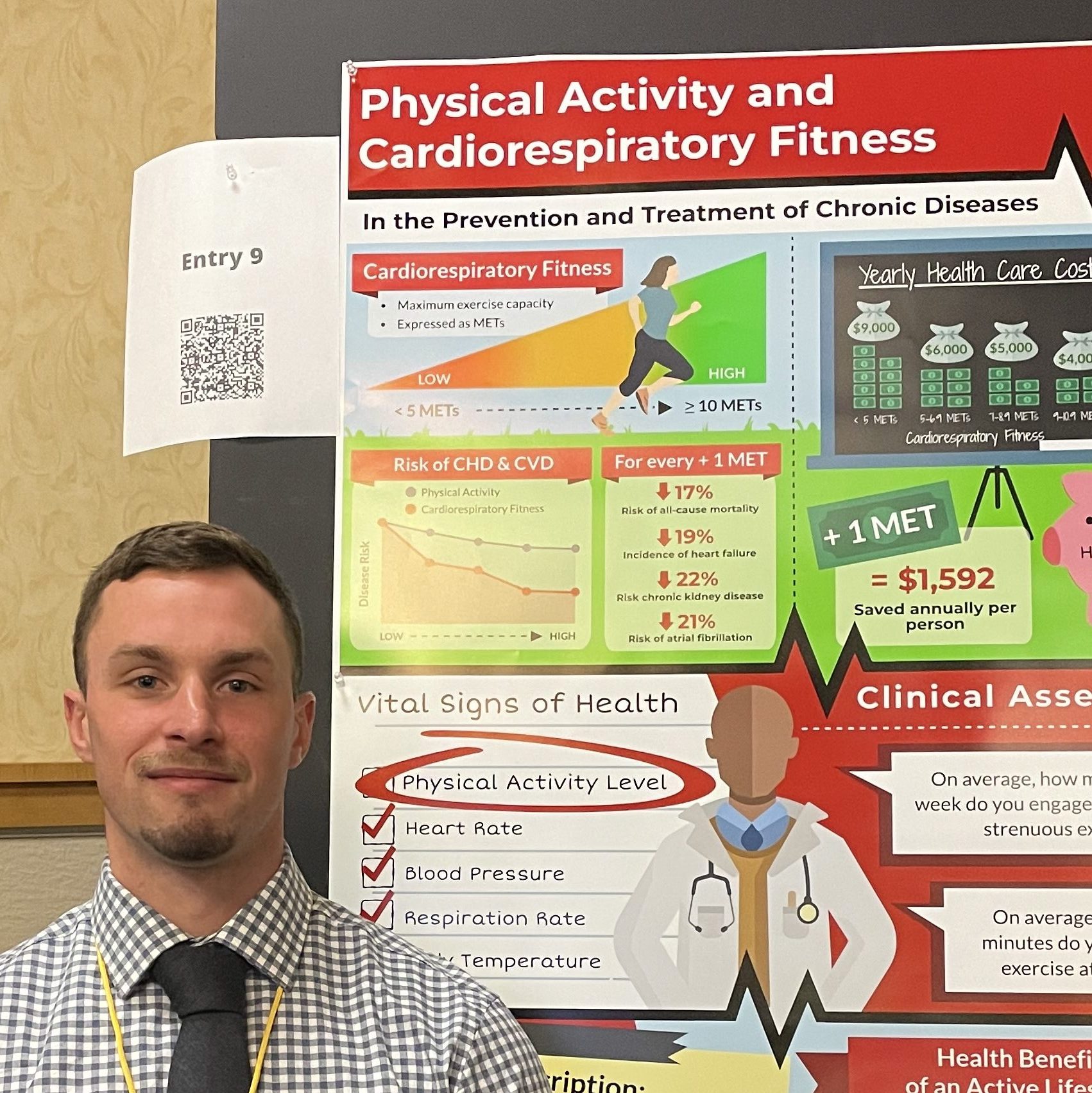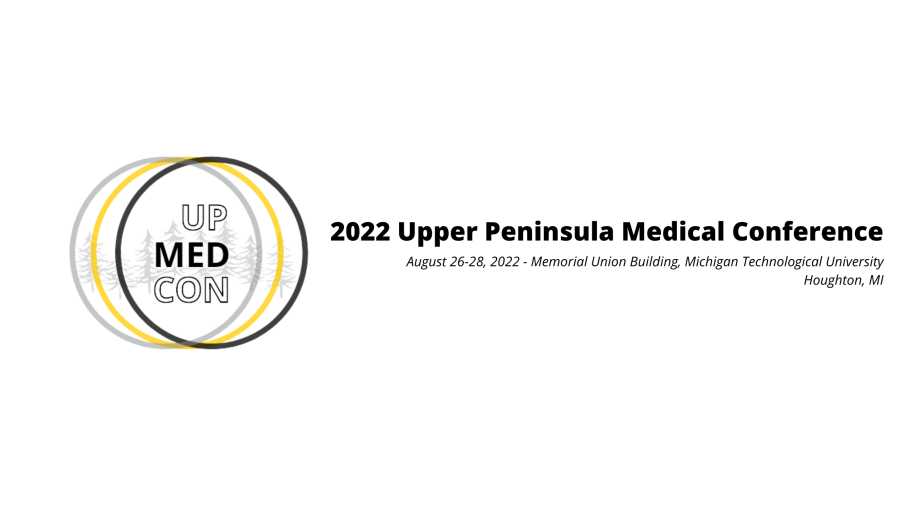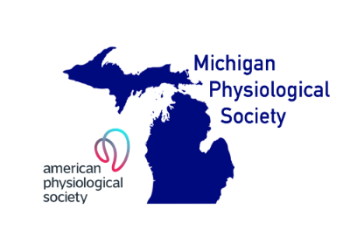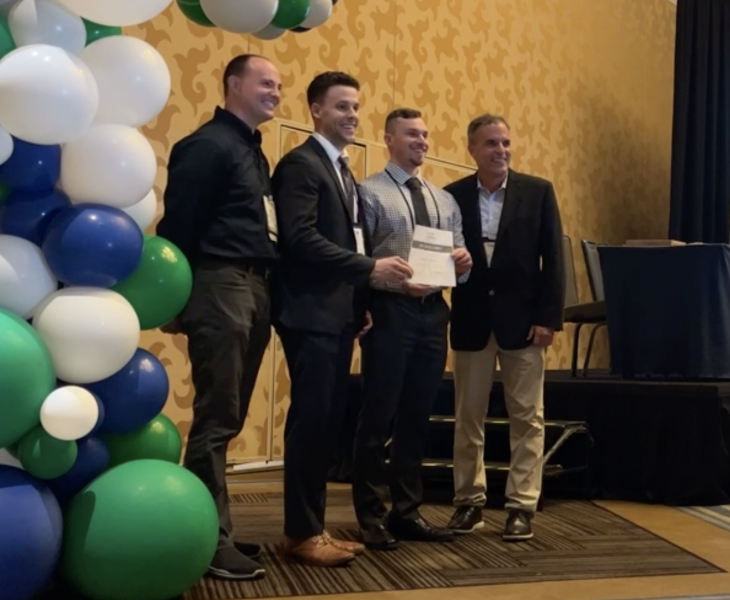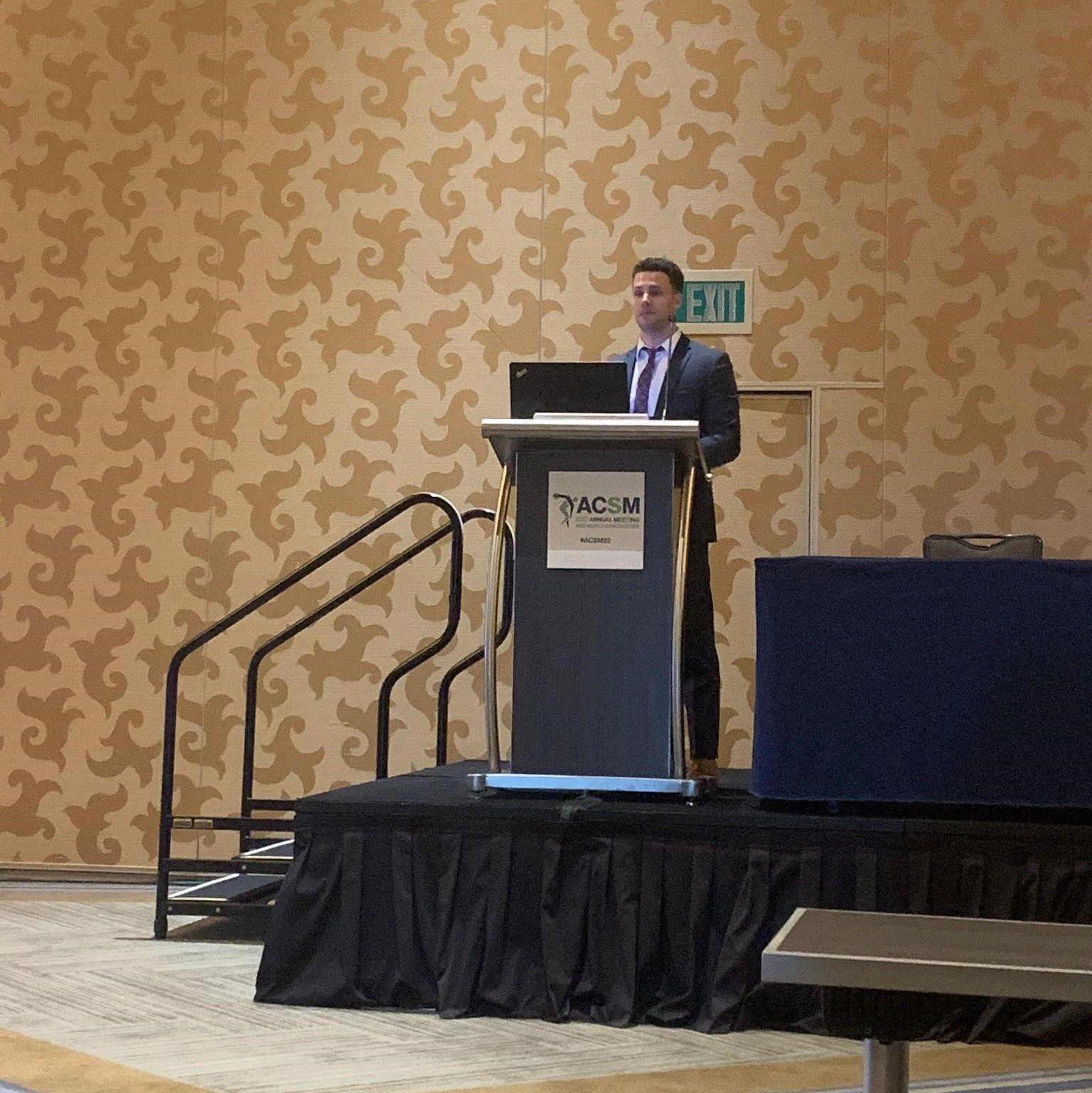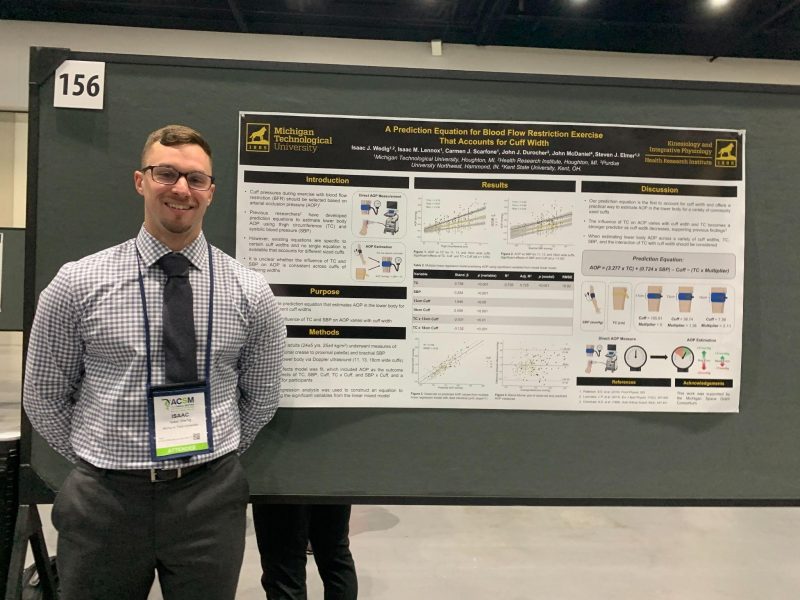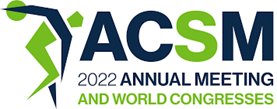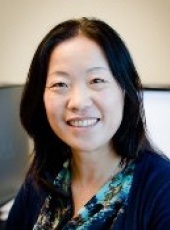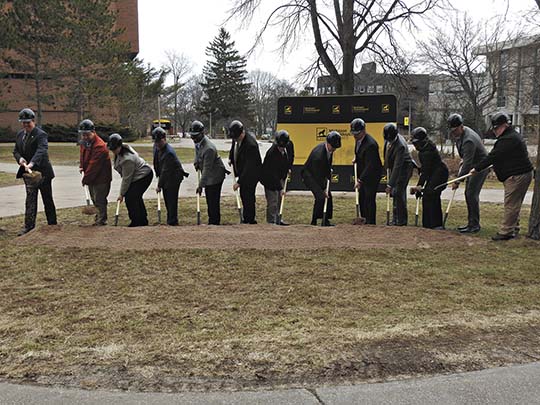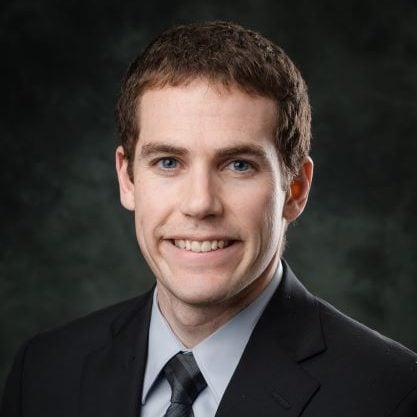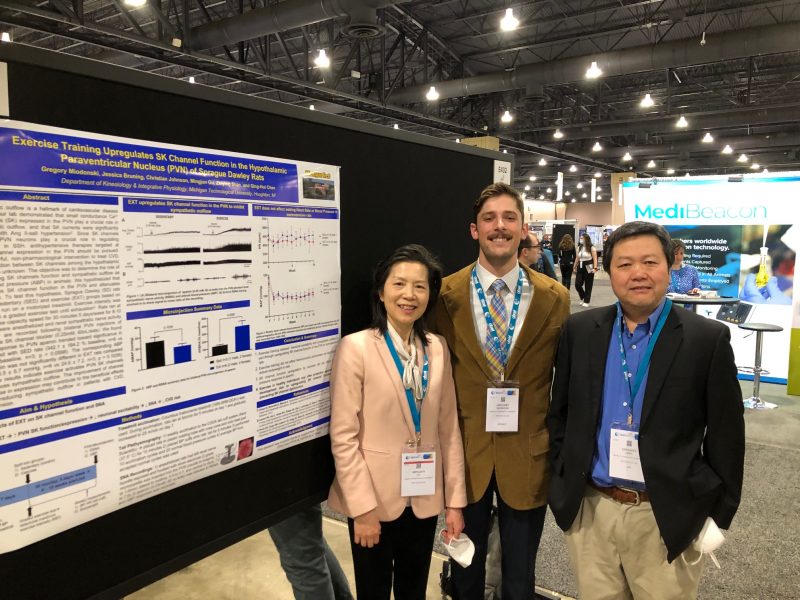Join us Friday, September 30, at 3:00 pm in ATDC 101 for the Department of Kinesiology and Integrative Physiology’s September Seminar. The seminar theme this semester will focus on promoting “Women in Health Science, Medicine, and Physiology” and includes a great line-up of local, regional, and national level speakers.
Ida Fonkoue, MD, PhD (University of Minnesota) and Audrey Stone, PhD (University of Texas – Austin) will present as part of a symposium on “Autonomic Control of Circulation for Health and Disease”. There will be plenty of time for extra questions and socializing after the presentations. At the end, there will also be time for a few rounds of the semester cornhole challenge tournament.
In addition to the seminar, we will be hosting a virtual lunch with the speakers from 12:30-1:30 pm on Zoom. This offers some additional time to meet the speakers, talk informally, receive career advice, and network. Please contact Jess Barish at jebarish@mtu.edu for the Zoom meeting information.
See you this Friday!
